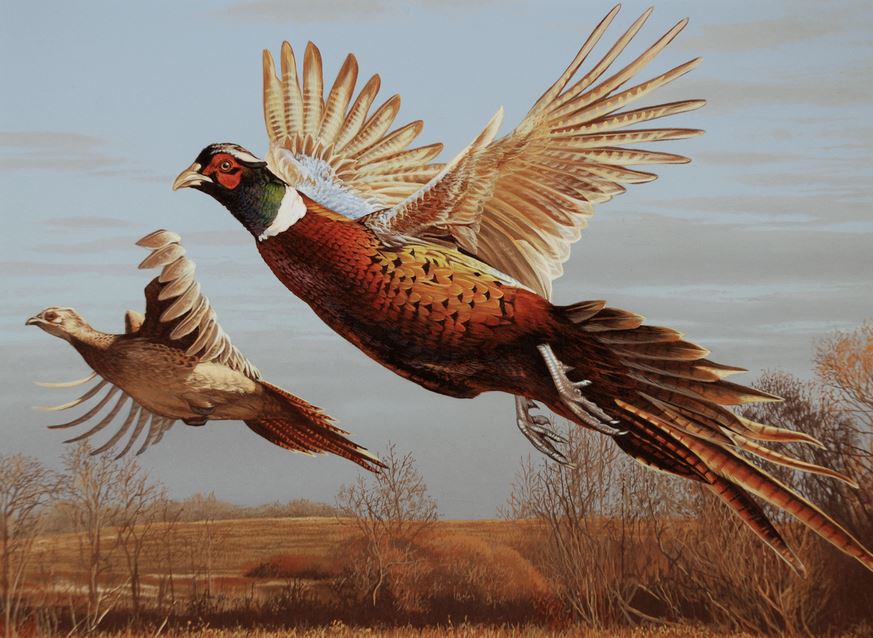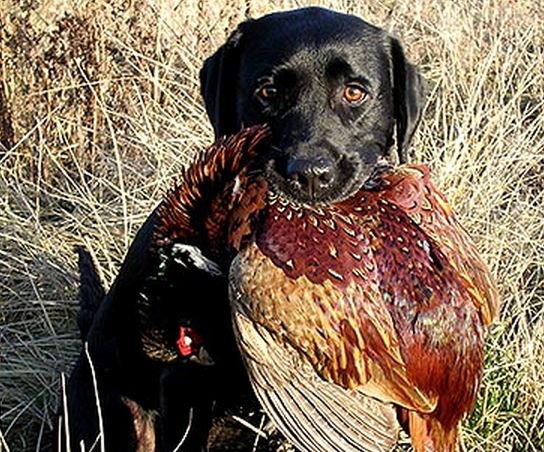Scores of RSPB supporters threatened to cancel their membership after hearing that one of the charity’s directors supported “progressive” pheasant shoots because they were good for wildlife and bird populations. Many members claim it is not possible to be a protector of birds while at the same time condoning shooting them.
Martin Harper, Conservation Director of the RSPB (Royal Society for the Protection of Birds), wrote in the charity’s blog:
“Yes, we condemn wildlife crime including any persecution of protected birds of prey. And yes, we continue to work with the police to end illegal killing which remains prevalent in the uplands, threatening the future of hen harrier, and still occurs on some lowland estates.”

About 50 million gamebirds are bred for shoots each year in Britain.
“But, the contribution progressive shoots can make to supporting threatened wildlife is significant, and we are delighted to help them further.”
“This isn’t a contradiction. We simply do whatever nature needs and will work with anyone that wants to help wildlife.”
Pheasant shoot owner can be good for wildlife
According to Mr. Harper, many farmers with shoots provide habitat management that is good for wildlife, which ultimately helps maintain bird populations. He added that the RSPB recognizes this contribution.
On lands where good habitat management is carried out with low release densities, or in areas that work to encourage breeding populations of gamebirds, the impact on wildlife can be very positive, he explained.
The long-term recovery of the grey partridge, for example, relies on the farm management of shoot owners, he wrote.
Mr. Harper said:
“Game estate habitat management includes woodland sky-lighting, planting cover crops, creating conservation headlands, and more. Recent figures from the Game and Wildlife Conservation Trust (GWCT) show that shoots create or maintain 7,000 ha of hedgerows and 100,000 ha of copses.”
“That’s a lot of land for wildlife. It is likely that game estate management, including farmland habitat management and targeted predator control can increase the numbers of some birds, for example ground- nesting species such as lapwing and grey partridge. Research shows that woodland management for pheasants can increase the numbers of some bird groups, such as warblers and estate management also benefits some small mammals, particularly wood mice and bank voles.”

The RSPB says its primary aim is to protect the long-term survival of common British bird species. It is not an RSPCA-type organization.
Tens of millions of birds bred for shoots
In 2008, a DEFRA (Department for Environment Food and Rural Affairs) report estimated that approximately 40 million gamebirds were bred annually each year in the UK for the sole purpose of being shot.
Most organizations say that the 2008 figure is considerably higher today. The RSPB estimates about 50 million are now bred annually for this purpose.
In its report, DEFRA expressed concerns regarding the gamebirds’ welfare, citing the “extent and duration of confinement of semi-wild species, sometimes within systems offering a barren, restricting environment.”
Stressing the need to work with landowners, Mr. Harper wrote:
“Our work with landowners who create wildlife-rich habitats through the work they do on their land is important for recovery of farmland wildlife.”
“This is why we cherish our work with farmers and will continue to form new relationships with any farmer or landowner that is keen to help the wildlife we all care about. And, we will not be distracted by those wishing to cause mischief by suggesting otherwise.”
In an interview with the Observer, Mr. Harper explained that the RSPB is not an RSPCA-type animal welfare organization. It primary interest is protecting the long-term survival of common bird species.
The Welfare of gamebirds
According to Animal Aid, millions of partridges and pheasants are mass-produced in hatcheries, cages, sheds and pens in the UK so that they can be shot by people who pay £1,000 per day for the ‘privilege’.
It claims that hundreds of thousands of ‘game birds’, used for egg production, spend their whole lives in raised laying units, which are simple metal battery cages.
Animal Aid writes:
“Animal Aid is calling for a ban on the use of battery cages for pheasant and partridge production. We are also campaigning for an end to all public subsidies to grouse shoots and the introduction of state licensing for shoots and gamekeepers – the retention of such licences to be dependent on the licensees staying within the wildlife protection laws.”
Video – The gamebird industry
This Animal Aid video claims that most gamebirds that are shot are not eaten.
